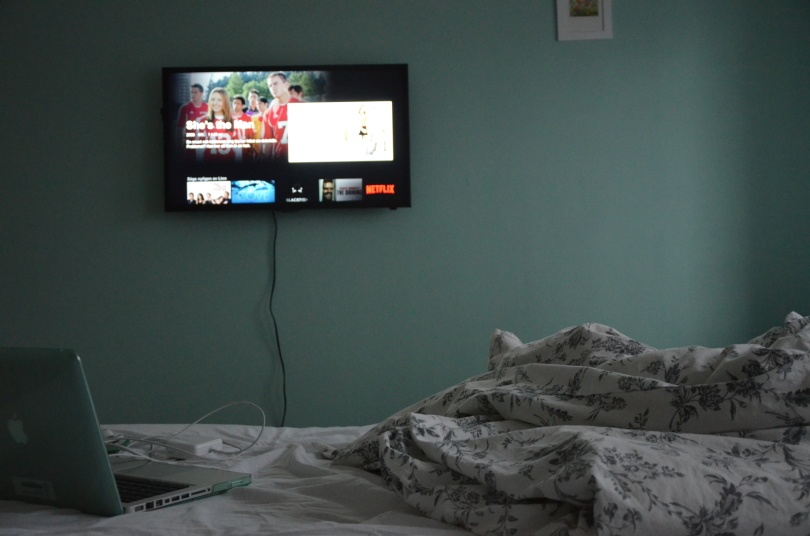Taking the Agony Out of Studying: Five Tips to Help You Learn More
You may not believe this, but the actual purpose for college is to learn. I know it sometimes comes across as an outdated concept, yet the keyword in the term “Higher Education,” is education.
Nevertheless, a common idea to remember is that learning, in all its forms, comes with a price, not counted in dollars and cents. The expense by which I am suggesting is studying. Yes, studying, that awful, evil term no college student wants to be told, and a practice so many do not want to engage in.
Just between you and I, (and everyone else reading this article) studying was not a priority for me in college. I was not the ruling magistrate of geekdom you see before you today. I hated studying with a passion, but that is because I was not privy to the wisdom I have now. So before you set fire to your psychology textbooks, I have compiled a list of study tips, which may be of service.
Like death and taxes, studying in college is one of those things which are scarcely, if not impossible to avoid. As an instructor, in addition to any subject matter I was attempting to teach, it seemed equally important to address student’s concerns about the learning process, or lack thereof. Studying is important, but as vital as it is to be done, it is at least as important as how it is done.
This brings me to another term called retention. So excuse me for a moment while I get technical-with-it. Retaining the information you study is the overall goal. The act of reading a book or text as a study model is just that…an act. You are acting as though you are studying, but you really are not. Then the probability of retaining the information and being able to recall it when necessary becomes a 50-50 proposition.
In roulette, these odds are rather good, but for learning they suck. The object I would try to impart to my students is to increase these odds in your favor. If you stepped up to a roulette table or a game of poker, and you thought your chances of winning were 80-90% you would play wouldn’t you? Well in the game of life…okay I’ll stop there.
Don’t Just Read, but Retain
The simple act of reading has the potential to de-evolve into a passive activity, like watching television, unless you are like me watching New York Jet games, where I often throw things around the room in frustration…but I digress. How many times have you read something and have no clue what it means?
You know all or most of the words you are reading, but the sentence has no interpretive value. This is a sign you have not learned anything from what you are reading. That is why there is a difference between reading and comprehending. At times like these it becomes necessary to provoke your brain. The best way to do this is to generate thought. The simple of writing a question next to the text or in your notes, will at the very least, remind you to do some further introspection.
When writing your question make sure it is a thought-provoking inquiry. Instead of writing “What is this?” trying writing for example, “What is a sociopath?” Thereby, the question itself urges you to seek an answer, or remember the question needs an answer. Knowing you need to know more is an act of learning.
Highlighting vs. Annotating
For years students have been using highlighter markers in their textbooks as a method of studying. Some e-books and tablets even have a highlighting feature, but like using a hammer to turn a screw, you are using a study tool for a purpose it was not intended.
Highlighting was never meant to increase retention. For one, you need to remember what you highlighted and why it was so important to do so. That is a lot of thinking without actually learning. The purpose for highlighting was to make it easier to go back and find something in a text quicker. But if you need to go back and find something, guess what, you probably did not learn much from what you have read.
Annotating however, is writing keywords or phrases next to text, which turns passive reading activities into learning experiences, because you are creating a thought process. Re-reading highlighted material only means you have to re-interpret the information all over again. Annotating allows you to skip over this step by providing digestible bits of information for easier recall.
Music
Although the jury is still out on which type of music is best to study by, music is capable of generating thought. Imagine watching a movie with no background music. It would likely be rather boring (i.e. The Blair Witch Project). The main purpose for background music in movies is because the director is trying to provoke a feeling or a thought in the viewer, which is why life is often less exciting than film.
You can produce your own atmosphere for active learning by giving yourself background music. Generally you might be better served having music, which provides little distraction. If you are listening to music that suddenly makes you want to get up and twerk, or whatever it is you kids do, you are probably creating the wrong mood—at least for studying purposes.
For example, often when I write I might listen to instrumental movie soundtracks. Although slightly geeky, this provokes feeling and emotion (not too much emotion), which spikes the thought process. Nowadays, there are even apps like Coffitivity.com that reproduce music and sound commonly heard in coffee shops like Starbucks, without leaving your room.
Study Groups
Despite popular belief, study groups do not entail a group of college students sitting in the same room reading, while sucking down Dominoes pizza or Froot Loops. If you intend to read in silence you can achieve this by yourself with probably less calories.
It may be a dated expression, but two, three, or four heads think much better than one. Simply talking about a subject matter in a group gets the proverbial wheels turning. Ideas you may not have had on your own will ultimately add to your learning experience. Studies show teaching or talking about information increases retention, because the mind is actively receiving and delivering information through thought.
When and How Long Should You Study?
Even though this is one of the most common concerns for students, I left this one for last, because the ideas I’ve suggested should first be incorporated into the time you spend studying. If you are spending hours and hours on end studying into the middle of the night, it might make you feel better about yourself, but you are actually impeding the learning process.
The average person retains the first fifteen minutes and the last fifteen minutes of what they are reading. Especially if you are not engaging in any active studying methods previously described. So here is a simple math equation. If this is true, how long should your study increments be? That’s right…thirty minutes.
This is not to say you should only study for a half hour, but you should not study for hours without taking reasonable breaks, even if it means taking a short walk around your dorm room. This will separate information into easily digestible chunks of data.
Avoid all-night study sessions at all costs. When the brain is tired it retains less and in essence you wind up just wasting your time. Try to study briefly right after class if possible, while the information you just learned is still fresh in your brain.
Bring prepared questions to class. Here’s a tip. Most professors like to show off how intelligent they are, especially if it means trying to prove they are more intelligent than you. Stroke their ego by asking questions. Your learning becomes more active and they can tout their intellectual prowess…then everybody wins.
At one time, I was a structural welder, which doesn’t sound like much of a learning experience however I can impart some simple knowledge upon you from this. As in life, building things or education hard work is important, but more important is to “work smarter, not harder.”










Leave a Reply
Want to join the discussion?Feel free to contribute!